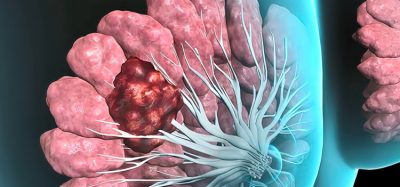Gut bacteria linked to fatty deposits in heart arteries
Posted: 12 July 2023 | Izzy Wood (Drug Target Review) | No comments yet
Swedish study reveals a significant link between specific gut bacteria and the development of coronary atherosclerotic plaques, a leading cause of heart attacks.


In a study conducted by researchers at Uppsala University in Sweden, a significant connection has been uncovered between certain gut bacteria and the development of coronary atherosclerotic plaques. These plaques, responsible for the accumulation of fatty and cholesterol deposits, are a leading cause of heart attacks. The study, which examined the gut bacteria and cardiac imaging of nearly 9,000 participants, aged 50 to 65, without prior heart disease, has been published in Circulation.
The research team leveraged the Swedish CArdioPulmonary bioImage Study (SCAPIS) to analyse gut bacteria and cardiac imaging data. They made a remarkable discovery regarding the presence of oral bacteria, particularly species from the Streptococcus genus, and its association with a higher occurrence of atherosclerotic plaques in the small arteries of the heart. The Streptococcus genus encompasses common pathogens responsible for pneumonia, throat infections, skin infections, and heart valve infections. The researchers now aim to investigate whether these bacteria play a role in the development of atherosclerosis.
Technological advancements have played a pivotal role in this study. With the aid of DNA sequencing, researchers were able to conduct a deep characterisation of bacterial communities present in biological samples. Meanwhile, improvements in imaging techniques allowed for the identification and measurement of early changes in the heart’s small vessels. The SCAPIS study stands as one of the world’s largest collections of both these types of data, facilitating the examination of the relationship between gut microbiota and the accumulation of fatty deposits in the heart’s arteries.
Sergi Sayols-Baixeras, the lead author from Uppsala University, highlighted the significance of the large dataset and the quality of the cardiac imaging and gut flora samples. The team was able to identify compelling associations, with Streptococcus anginosus and S. oralis subsp. oralis emerging as the two most influential species in the study.
Remarkably, the researchers also found a correlation between the species implicated in the accumulation of fatty deposits in the heart arteries and their levels in the mouth. This discovery was made by analysing fecal and saliva samples obtained from the Malmö Offspring Study and Malmö Offspring Dental Study. Furthermore, these bacteria exhibited links to inflammation markers in the blood, even after accounting for dietary and medication differences between participants carrying the bacteria and those who did not.
Marju Orho-Melander, Professor at Lund University, stressed that the study represents the initial stages of understanding the intricate interplay between the human host and the bacterial community residing in different parts of the body. The findings indicate poorer cardiovascular health in individuals harboring streptococci in their gut, prompting further investigations into the potential role of these bacteria in the development of atherosclerosis.
This study sheds new light on the relationship between gut bacteria and the formation of coronary atherosclerotic plaques. The discovery of specific species, particularly from the Streptococcus genus, and their association with the development of plaques underscores the need for further research into the underlying mechanisms. Ultimately, this knowledge could pave the way for novel interventions and treatments targeting gut bacteria to mitigate the risk of heart attacks caused by atherosclerosis.
Related topics
Bacteriophages, DNA, Imaging, Sequencing
Related conditions
Atherosclerosis, coronary atherosclerotic plaques, heart attacks
Related organisations
Lund University, Uppsala University
Related people
Marju Orho-Melander, Sergi Sayols-Baixeras







